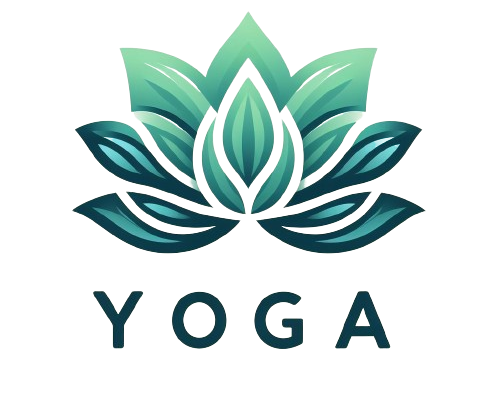Yoga and acupuncture are ancient practices that have stood the test of time, evolving through centuries into highly regarded modalities for enhancing wellness and health. Both rooted in the intricate philosophies of Eastern medicine and spirituality, they offer profound benefits for the mind, body, and spirit.
The Ancient Roots of Yoga and Acupuncture
Yoga, a sacred practice with origins in India over 5,000 years ago, serves as a path to spiritual enlightenment, physical health, and mental clarity. The essence of yoga encompasses the physical postures (asanas) and also meditation (dhyana), breath control (pranayama), and ethical disciplines. Yoga’s philosophy is deeply intertwined with the ancient Indian texts, the Vedas, and the Bhagavad Gita, advocating for a connectedness of the individual self with the universal consciousness.
Acupuncture dates back over 2,000 years, with its theoretical foundations laid in texts like the “Huangdi Neijing” (The Yellow Emperor’s Classic of Medicine). This practice involves the insertion of thin needles into specific points on the body, known as acupoints, to balance the flow of life energy, or Qi (chi). Acupuncture is based on the principle that health is achieved by maintaining the body in a balanced state and that disease is due to an internal imbalance of yin and yang.
Philosophical and Theoretical Synergies

The philosophical and theoretical synergies between yoga and acupuncture reveal a deep interconnectedness in health and wellness, rooting both practices in the ancient wisdom that sees the body not as a collection of independent parts, but as a cohesive system where energy flows are crucial for maintaining balance and vitality. In yoga, the concept of prana is the life force that circulates through the body, empowering every cell, tissue, and organ. Through various asanas (postures), pranayama (breathing techniques), and dhyana (meditation), yoga practitioners work to harmonize and boost the flow of prana, aiming to remove blockages that can lead to physical discomfort or emotional disturbances.
Acupuncture, grounded in Traditional Chinese Medicine (TCM), operates on the principle of Qi, the vital energy that animates the body and its systems. By inserting fine needles into specific points along the body’s meridians—channels through which Qi flows—acupuncturists seek to correct imbalances and restore the body to its natural state of equilibrium. This precise stimulation of acupoints is believed to enhance the body’s innate healing capabilities, addressing not just the symptoms but the root causes of illness and discomfort.
The complementary relationship between yoga and acupuncture is striking when considering their shared goal of promoting the free flow of vital energy. Yoga prepares the body and mind to be more receptive to acupuncture treatments. The relaxation and openness cultivated through yoga practice can enhance the effectiveness of acupuncture by ensuring that Qi flows more freely and is more easily accessible. Acupuncture can significantly deepen the benefits of yoga by clearing blockages in energy pathways that might take longer to address through yoga alone. By unblocking these pathways, acupuncture facilitates a smoother and more robust flow of prana throughout the body, which can lead to enhanced vitality, greater mental clarity, and an overall sense of well-being.
This mutual enhancement is valuable for individuals seeking holistic approaches to health care. Incorporating both yoga and acupuncture into one’s wellness routine offers a comprehensive strategy for managing stress, healing physical ailments, and achieving greater emotional balance. By engaging with these practices, individuals tap into the ancient knowledge of energy flow and balance, harnessing their potential to improve specific health issues and to elevate their overall quality of life.
Physical and Mental Health Benefits
Both yoga and acupuncture have been the subjects of numerous scientific studies highlighting their effectiveness in treating a variety of conditions.
Yoga is renowned for its ability to increase flexibility, improve muscle strength and tone, and boost cardiovascular functioning. Acupuncture has been found effective in treating chronic pain, including back pain, arthritis, and migraines, and can help in managing respiratory conditions, such as asthma. The combination of both practices can lead to improved physical health, pain reduction, and enhanced energy levels.
Yoga’s meditative aspect is a powerful tool for stress reduction, improving mental clarity, and enhancing mood. Similarly, acupuncture has been shown to be effective in treating anxiety, depression, and stress. The practices complement each other well, offering a robust approach to mental health that can alleviate symptoms and contribute to a sense of general well-being.
Integrative Wellness Approach
Incorporating yoga and acupuncture into one’s lifestyle represents an integrative approach to health, one that acknowledges the interconnectivity of the mind, body, and spirit. This holistic perspective is gaining traction in Western medicine, with more healthcare professionals recognizing the value of these practices in preventive care and as adjunct therapies for various health conditions.
Practicing yoga regularly can sustain the benefits of acupuncture treatments by maintaining the free flow of energy between sessions. The self-awareness cultivated through yoga can help individuals become more attuned to their bodies, thereby recognizing early signs of imbalance or illness that can be addressed proactively with acupuncture.
